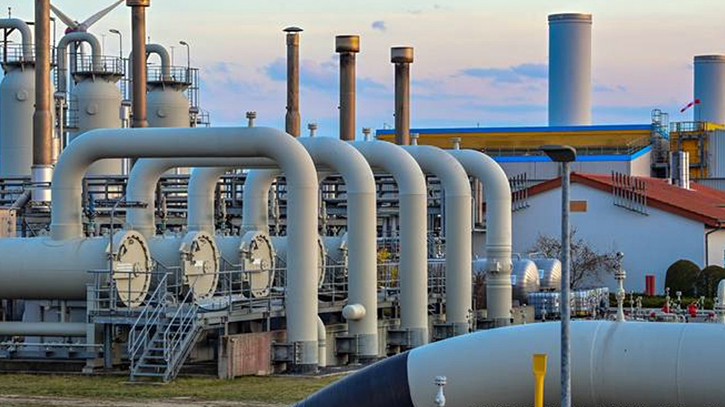
Photo: Collected
Industrial production in the country is facing significant disruption due to a severe gas shortage. Textile mill owners claim that production has decreased by up to 70 percent. They say that purchase orders are being canceled due to their inability to export on time. However, Petrobangla claims that the gas crisis will end once LNG terminal operations resume.
While gas shortages in industrial settings are not uncommon, the current situation has intensified, causing severe impacts on production. Industry owners express concerns about insufficient foreign currency reserves and warn of potential disaster if the gas crisis persists.
The Bangladesh Textile Mills Association (BTMA), an organization of textile mill owners, has recently sent a letter to the Chairman of Petrobangla requesting a quick resolution to the situation.
Executive President of the Bangladesh Knitwear Manufacturers and Exporters Association (BKMEA), Mohammad Hatem, told The Daily Messenger, “Our production is being disrupted due to the gas crisis. Export orders are already low, and even the export orders we have, we are not able to fulfill on time. We are now in a 19 percent minus position in the US market, while Vietnam and China are moving forward with positive growth.”
President of the BTMA, Mohammad Ali Khokon, said, “Textile, spinning, and dyeing work in three shifts for 24 hours. Due to the gas crisis, production is reduced by 50 percent and sometimes by 70 percent.”
According to Petrobangla, the country's daily gas demand is about 3,700 million cubic feet, but it is currently getting only 2,065 million cubic feet. This shortfall is met with LNG. But with one of the two floating LNG terminals damaged due to Cyclone Remal, the gas crisis has increased in industrial plants. However, the chairman of Petrobangla says the crisis will decrease by the middle of next month.
Chairman of Petrobangla, Janendra Nath Sarkar, said, “We have started buying spot market LNG for the next month. One has been purchased. After resuming the LNG terminal, we will buy more. Everything will be normal soon.”
Industrial owners are disappointed about not getting the desired gas despite the high price of fuel. They demand an uninterrupted supply of gas to sustain industrial plants.
However, garments, the main export product that earns the highest foreign currency, are currently declining during the first five months of the year due to the global economic slowdown and local energy crisis.
According to the Bangladesh Garment Manufacturers and Exporters Association (BGMEA), apparel exports were $4.97 billion in January, $4.49 billion in February, $4.34 billion in March, $3.29 billion in April, and $3.35 billion in May.
Even in May, export growth was down by 17.19 percent year-on-year. In the fiscal year, apparel exports grew very insignificantly by 2.86 percent.
Messenger/Fameema








